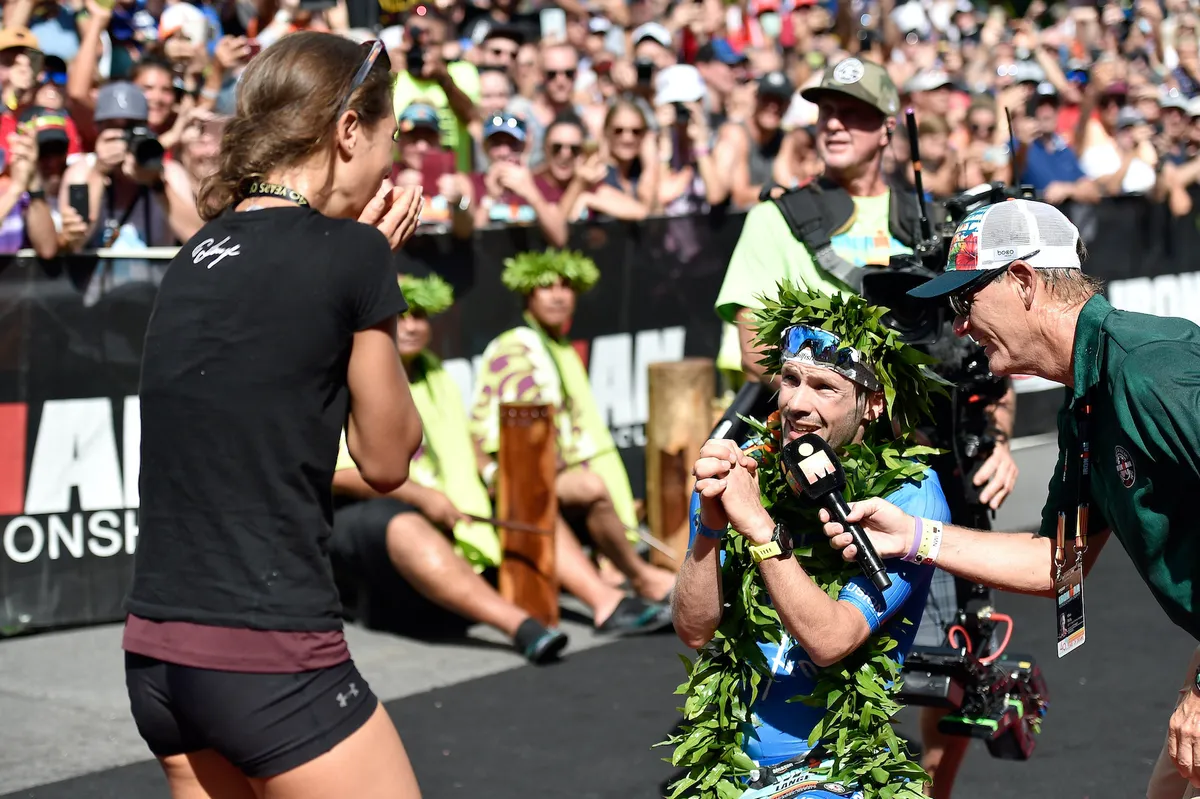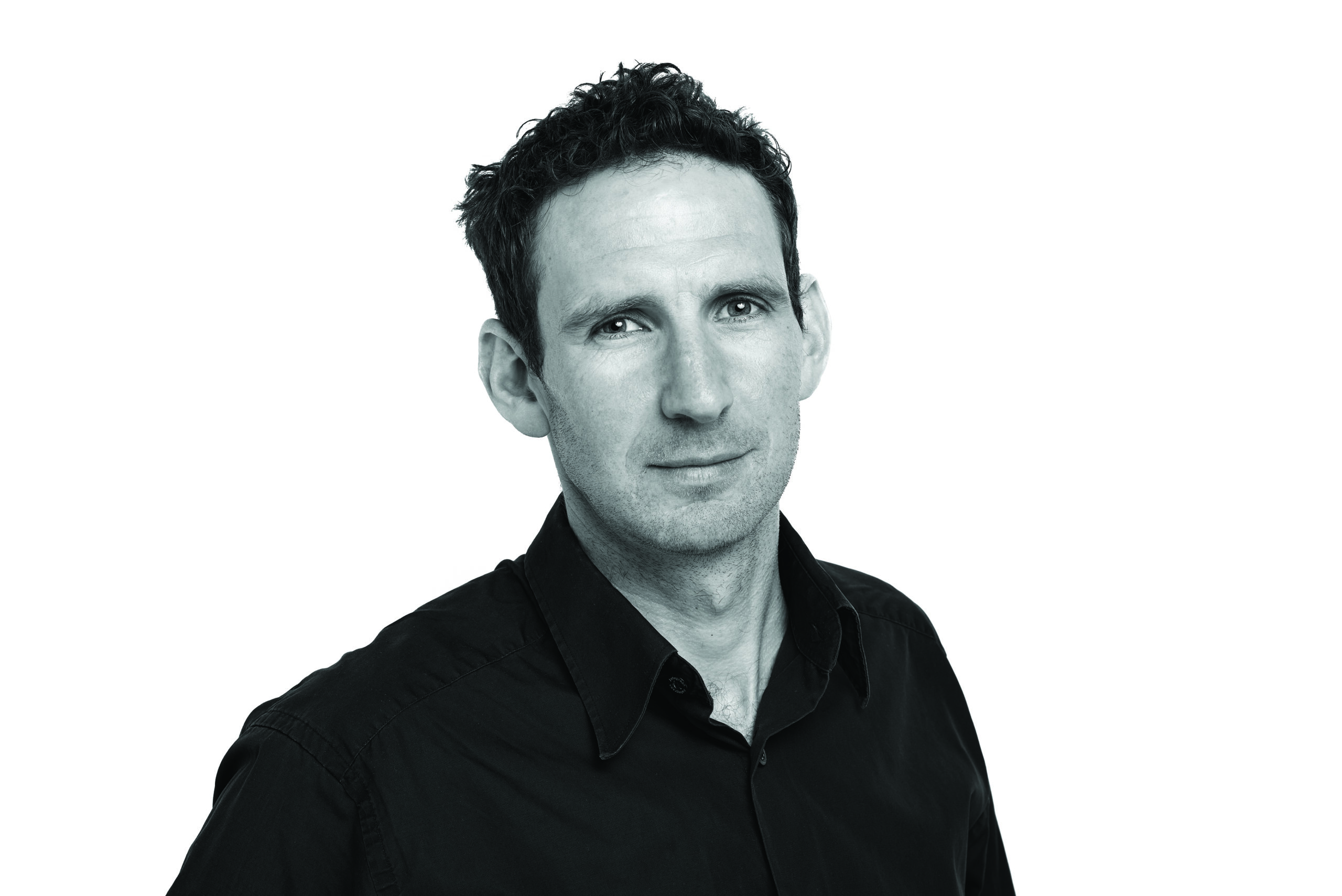Patrick Lange was born to Ironman racing. Deep down he’d always known, yet he wasn’t ready to accept it until he was in danger of losing it all.
“When I look back to my childhood, I didn’t tire compared to the other kids,” Lange says. “At the age of 15, I rode a 120km mountain bike marathon and I can honestly say that I never bonked.”
Brought up in Bad Wildungen, a small city in central Germany, Lange raced go-karts in his teens before a two-year stint in the military, and when he did transition to triathlon it was to mid-pack obscurity in third-tier ITU races, his training compromised by physiotherapy studies and then work.
Unfulfilled, he decided on a risky full-time tilt at professional sport at the end of 2015, inspired by his first triathlon coach, a six-time finisher at the Ironman World Champs in Kona, Hawaii, to “try the long-course racing I’d always wanted”. It was his next coach, though, who would really up the ante.
Coaching philosophy
Compatriot Faris Al-Sultan has, in the words of Lange, “made all the big mistakes so that I don’t have to.” Al-Sultan ran his first marathon aged 16, raced his first Ironman aged 19, won the world title in 2006, and would cycle 350km in the Middle East in training.
With the body having called time on his own career, he’s become a sort of anti-trainer for Lange, imposing a reverse psychology that draws the best from his charge.
“Faris is completely different,” Lange says. “When we started, he said: ‘You’re not really talented and I don’t know if you’ll ever win a big race. If you want me to coach you to win Kona, I’m the wrong guy.’
"He was making the point that I need to improve a lot. But Faris is also a big idol for me. I liken him to Zinedine Zidane. If a young player comes to Real Madrid and isn’t confident, he’ll look to the sideline and see his childhood hero.”
In terms of coaching philosophy, Lange compares Al-Sultan to successful Australian coach Brett Sutton in the way neither rely on technology.
“When I go out for intervals on a bike ride,” Lange says, “Faris rarely puts a watts number on it. He’ll give more of a feeling to aim for, such as ‘speedy’. In some ways it’s close to Sutton’s ‘moderate, medium, mad’ stuff.”
Despite the guidance, it looked less a smart career move and more a guaranteed loss-making venture. Lange might have received €1,000 a month from his only regular sponsor, but half of that went on private medical insurance.
Thankfully, results came quickly, and although a win at Ironman Texas in June 2016 stamped the ticket to Kona, it was defeat in an Ironman 70.3 race in the Philippines three weeks later to the 42-year-old triple Kona champ, Australia’s Craig Alexander, that convinced the German he had the ability to thrive in oppressive conditions.
“I set a new bike course record, but Crowie caught me 5km from the finish,” he recalls. “I was also lucky enough to make my nutrition mistakes there.”
With hindsight, Lange’s 2:40:01 marathon to win in Texas should have raised more eyebrows, but an asterisk remained after a shortened 151km bike course (instead of 180km) and Kona would surely be a different story? It was – only better.
Seeing Lange run on the Queen Ka’ahumanu Highway in Hawaii is one of the greatest sights in triathlon. What comes so fleetingly to mere mortals – those rare moments where everything flows in unison – is his stock in trade.
In 2016, he ran 2:39:45 for third place to break Mark Allen’s record from the famous Iron War showdown with Dave Scott 27 years earlier. The following two years he ran 2:39:59 and 2:41:32. Last year he lowered his own overall course record to 7:52:39.
Conditions had never been better, but is there still room for improvement? “I don’t like to say ‘no’, but… no,” Lange says. 2018 was the perfect day.
Frankfurt showdown
Yet there’s one venue where the task remains trickier than winning again on the Big Island. Ironman Germany is now in its 15th year in Frankfurt and draws huge crowds, stellar fields and, on the men’s side, features the best triathletes in long-course racing, who all happen to be German.
For Lange, who has moved to nearby Darmstadt, it’s almost a hometown race, but his best finish is third last year when fellow German Jan Frodeno out-ran him by 8mins. Why did the tables turn?
At over 30°C, conditions should have played into 175cm Lange’s favour against his 195cm rival. But Frankfurt lacks the humidity of Hawaii’s Big Island that locks in the heat and Lange also believes the flatter run course negates his technical superiority on the marathon.
“Kona is much more challenging, but in Frankfurt you don’t have to adapt your running stride so often,” he explains.
Yet more telling than all of this is that Lange simply isn’t anywhere near his peak in July. Given triathletes can take a career to crack the Kona code, there’s not enough incentive to change from the winning formula he instantly struck on for debut in 2016.
Like his race tactics, Lange’s entire season is founded on unshakeable patience that culminates with surgical incision in October. You could argue the same for other specialist Hawaii performers such as Australian Mirinda Carfrae, or Scotland’s David McNamee.
The German preserve
Not that Frankfurt isn’t a priority. For 2019, Lange will return to renew rivalries with compatriots Frodeno and Sebastian Kienle and potentially Canadian powerhouse Lionel Sanders, but will also be content to see attention focussed elsewhere.
“Some guys grow in the spotlight, I think Jan or Lionel are like this,” he says. “But I like to be in the background and just race as hard as I can against the best – and win against the best.”
As for being the best, it firmly remains the German preserve. Frodeno and Kienle have shared the past four Frankfurt titles and their nation has provided every Ironman world champion since 2014, with a legacy stretching back over two decades through Normann Stadler, Jurgen Zack and Thomas Hellriegel.
“I don’t know the reason we’re so good,” Lange admits. “It’s maybe that we also have a strong second and third tier so even to win prize money in a small local race you really have to up your game. I also think we are benefiting from knowledge that former Ironman champions give us.”
Protein & proposals

Aside from winning, Lange is also notable for his vegetarianism, race tactics and a finish line marriage proposal, but says none of it is designed to court controversy. “I just feel I recover faster,” he says of his diet.
“When I eat meat, it stays a long time in my digestive system. From a macronutrient standpoint I need to get enough protein, iron and folic acid and that’s maybe the toughest challenge, so I have to supplement. I also check my blood levels every two to three months to make sure everything is fine.”
As for the very public proposal of marriage after crossing the line in Kona last year, it seems to have stretched Ironman’s reputation beyond endurance junkies to the supermarket checkout.
“I meet people shopping who didn’t know anything about triathlon, but knew that there was some guy who proposed after winning a world title,” Lange says. “It was so public in Germany and there was a lot of positive feedback.” Including, thankfully, from his now-fiancée, Julia.
As Lange tunes back into racing, even without Frankfurt success, far fewer will be writing him off for Hawaii this time. If he does win again, he’ll join Alexander and Canadian Peter Reid in illustrious company on three titles, with Scott and Allen’s total of six a long-term aim.
“I definitely have the ability to win again,” Lange says. “But how many more times I don’t know. Alexander won aged 39 and I see a lot of parallels between Crowie and myself.
"He was also a physical therapist and, if you start late with Ironman racing, you can extend your career. I’ve six Ironman races in my body now and still a lot to learn and improve at.”
Patrick Lange's top 3 tips for a fast marathon
As the fastest marathon runner in Ironman, how does he continue to consistently deliver when it matters? Here’s Lange’s advice…
1. Find a coach
You’ll benefit from a running coach to teach you the right technique. The key to a fast and fun Ironman run is efficiency, and the best way to do it is to take objective advice.
2. Confidence to stay calm
Not going out too quickly at the start is still the magic ingredient for a good run. We all know it, but it’s hard to do, yet if you want to run your best marathon, stick to your pacing strategy.
3. Nail the bike nutrition
I believe 75% of carbohydrates for the whole race should be taken on the bike. This is fundamentally important to be able to pace the run correctly because you cannot take on many carbs on the marathon when your stomach is bouncing up and down.
How to get Patrick Lange's iron mindset
Whether it’s rising early for morning training or completing the final miles of an Ironman marathon, Lange has built a resilient mindset to carry on. Here are his top three tips...
1. Love what you do
Triathlon is a straightforward swim, bike and run, but you must enjoy it if you’re going to train effectively for Ironman. I’ll never tire of hearing the bike chain running over the pulleys on my bike.
2. Be grateful every day
The sun is shining, and I want to go out and train because I still feel the love for the sport. When I’m ill and can’t train, it’s a reminder how much it means to me.
3. Finish what you start
Whether it’s training or racing, that feeling of accomplishment at finishing the job is a reminder of why we do it. There is little better than finishing your first Ironman. Hold on to that thought.
Top image credit: James Mitchell
